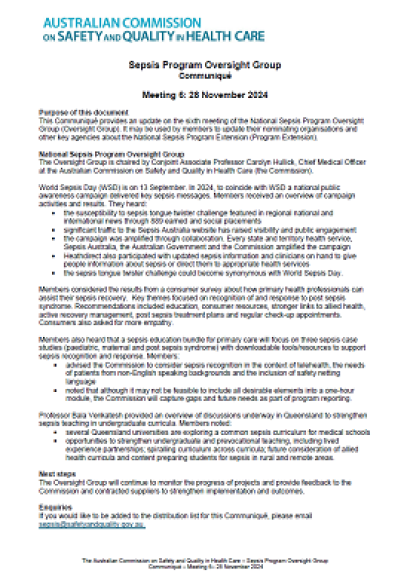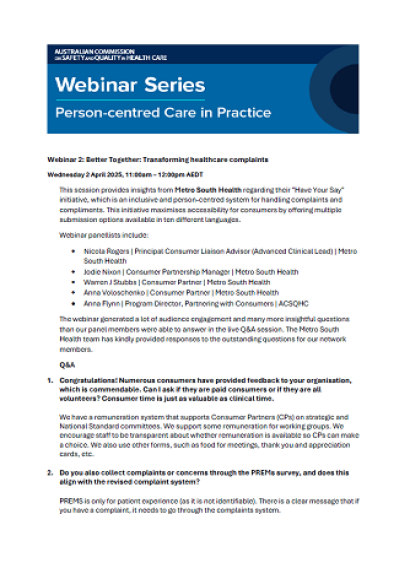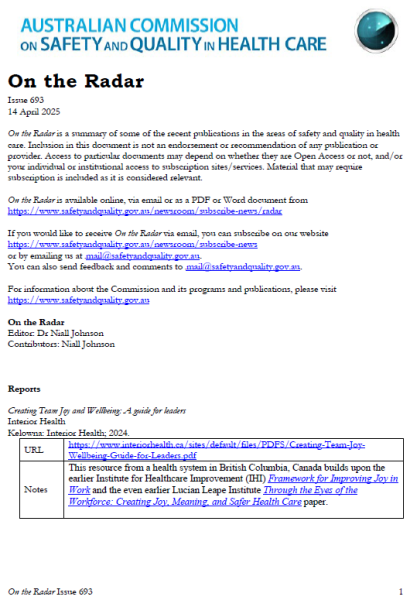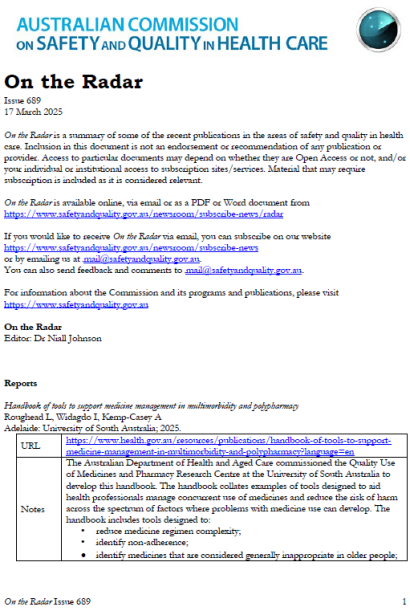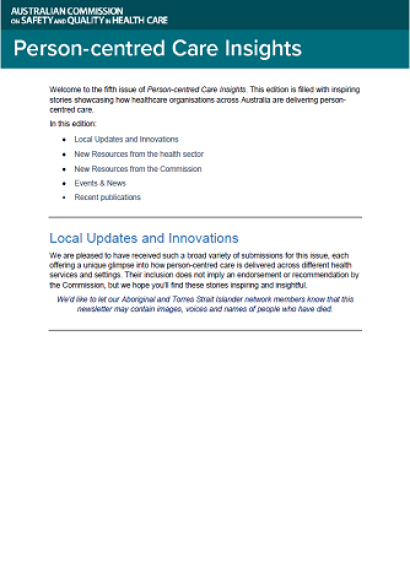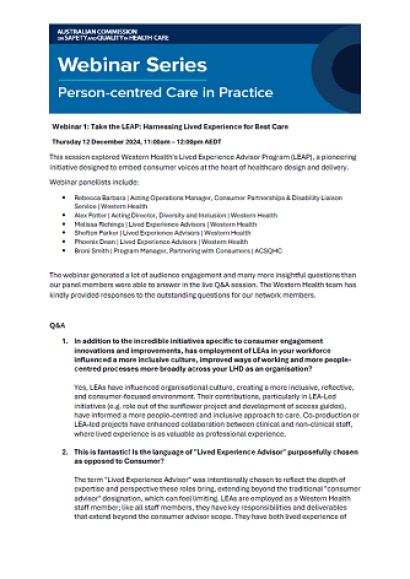Providing a supportive environment and clear processes for the workforce to explore the cultural needs of Aboriginal and Torres Strait Islander patients can be a significant step towards the development of a safe and respectful organisation, where patients, their families and other community members can feel comfortable to engage with and receive care.
Gastroscopy is used to investigate, treat and monitor some gastrointestinal conditions. Find out about variation in repeat gastroscopy services in the Fourth Australian Atlas of Healthcare Variation 2021.
The primary care sector has an important role to play in improving the safe and appropriate use of antimicrobials, and reducing patient harm and the risk of antimicrobial resistance (AMR) in Australia.
Approved accrediting agencies assess health service organisations to the National Safety and Quality Health Service (NSQHS) Standards, Multi-Purpose Services (MPS) Module, and/or the National Clinical Trials Governance Framework. These agencies are approved by the Australian Commission on Safety and Quality in Health Care (the Commission) following application and review by an approval panel.
Measurement and feedback are key to quality improvement. Data can be used to identify areas where services are doing well and areas where improvement is required.
This clinical care standard sets out the components of care that health service organisations can use to guide practice and monitor improvement in hospitals and other services where the Third and Fourth Degree Perineal Tears Clinical Clinical Care Standard applies.
AGAR collects, analyses and reports on antimicrobial resistance (AMR) data on selected priority organisms that cause bloodstream infections.
The National Safety and Quality Health Service (NSQHS) Standards support the rights of people with intellectual disability to equitable health care. People with intellectual disability experience significant barriers in accessing safe and quality care evident through a higher mortality rate, increased incidence of preventable illness and more frequent hospital admissions.
In this section, you will find guidance and resources for implementation of the NSQHS Standards, to support healthcare rights and provision of inclusive health care.
Outlines the information for organisations seeking approval as an accrediting agency under the Australian Health Service Safety and Quality Accreditation (AHSSQA) Scheme.
The Infection Prevention and Control (IPC) Advisory Committee provides a mechanism for the Commission to consult with experts and key stakeholders on the development and implementation of national initiatives related to IPC.
Digital mental health services accredited to the National Safety and Quality Digital Mental Health (NSQDMH) Standards have been independently assessed to ensure they have systems in place to meet the necessary safety and quality requirements.
State and territory health departments regulate accreditation.
Polypharmacy is when people are using five or more medicines at the same time. This can increase their risk of medicines-related harm. Find out about variation in rates of polypharmacy in the Fourth Australian Atlas of Healthcare Variation 2021.
The Multi-Purpose Services Aged Care Module is designed to support eligible Multi-Purpose Services to improve aged care delivery. With a focus on quality and compliance, it's designed to simplify meeting NSQHS Standards while improving resident outcomes.

